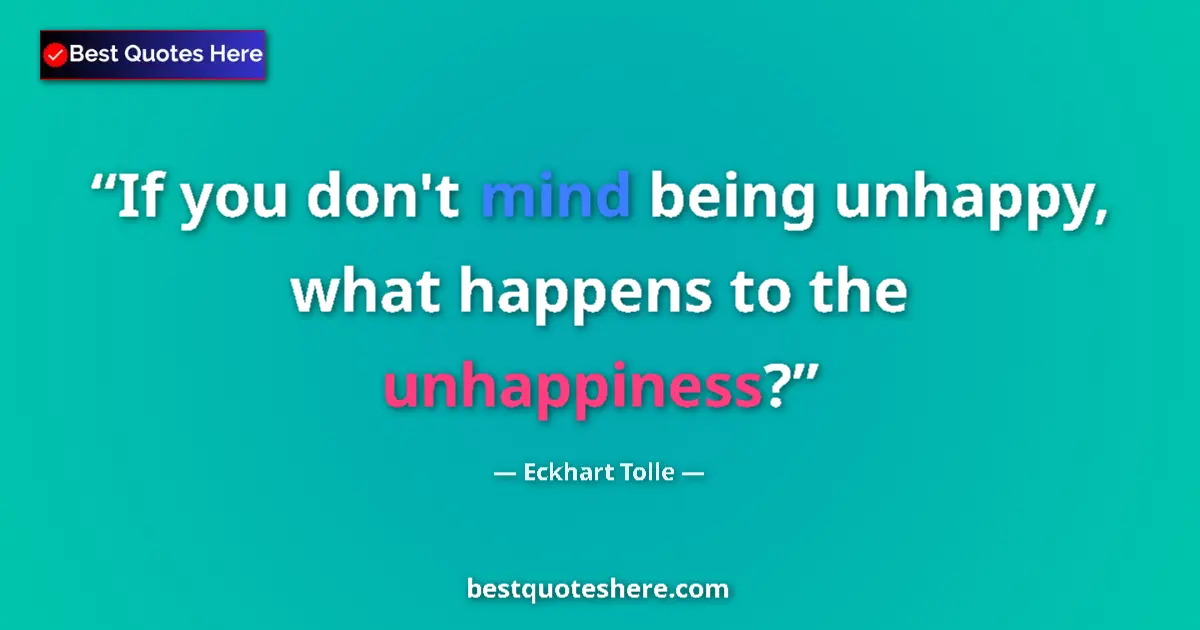"If you don't mind being unhappy, what..." - Quote by Eckhart Tolle
If you don't mind being unhappy, what happens to the unhappiness?

More by Eckhart Tolle
“We are in the final stages of egoic madness. Almost the whole world is fighting each other.”
“Attention is the key to transformation- and full attention also implies acceptance.”
“So it is essential to bring more consciousness into your life in ordinary situations when everything is going relatively smoothly. In this way, you grow in presence power. It generates an energy field in you and around you of a high vibrational frequency. No unconsciousness , no negativity, no discord or violence can enter that field and survive, just as darkness cannot survive in the presence of light.”
More on Unhappiness
“Your unhappiness ultimately arises not from the circumstances of your life but from the conditioning of your mind.”
“The attitude of unhappiness is not only painful, it is mean and ugly. What can be more base and unworthy than the pining, puling, mumping mood, no matter by what outward ills it may have been engendered? What is more injurious to others? What less helpful as a way out of the difficulty? It but fastens and perpetuates the trouble which occasioned it, and increases the total evil of the situation. At all costs, then, we ought to reduce the sway of that mood; we ought to scout it in ourselves and others, and never show it tolerance.”
“All sorrow has its root in man's inability to sit quiet in a room by himself.”
More on Acceptance
“I see that nature offers us a solution to everything that we call a problem. If you can just find your own nature and live it as naturally as you possibly can and be in a state of awe over everything, it doesn't matter where you are. It almost speaks to you and says, "There's no reason to be upset about anything. It will pass." If it's really going to pass, why stay confused by it and depressed by it. Just watch it go. It's on its way out. That's what I began to do.”
“Why should we assume the faults of our friend, or wife, or father, or child, because they sit around our hearth, or are said to have the same blood?”
“We love the things we love for what they are.”